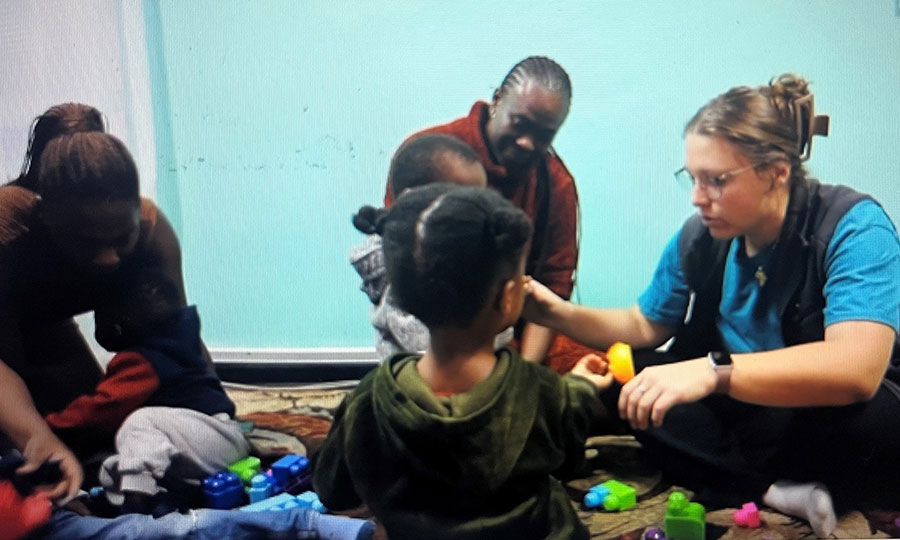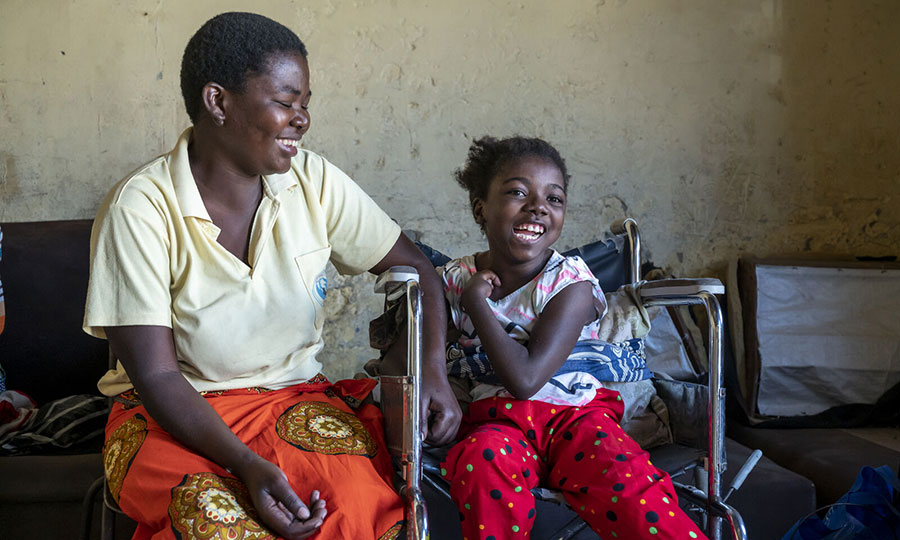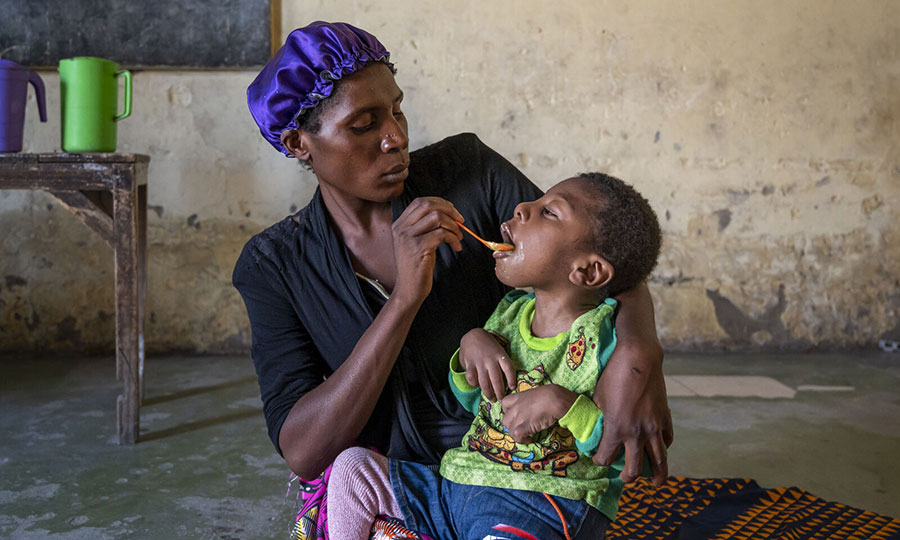Volunteer Perspective: Advancing Speech Therapy in Zambia

Hello! Muli Bwanji? My name is Abbey Pratt, and I am serving as a volunteer speech-language pathologist with CMMB and Access to Health Zambia (A2HealthZ) in Lusaka, Zambia, until the beginning of August. Currently, I am assisting with the Kusumala Project, which focuses on children with disabilities, specifically supporting those with feeding and swallowing difficulties, as well as advocating for speech therapy in Zambia.
Week by Week, Clinic by Clinic
During the work weeks, I have the opportunity to visit three different hospitals and clinics to provide speech therapy services. These facilities include University Teaching Hospital (UTH), Kanyama Level 1 Hospital, and Chawama Level 1 Hospital.
At UTH, I am providing support and education to the communication technologist, who manages services in the speech clinic. I also work directly with caregivers and parents of children with disabilities. At the speech clinic, we see pediatric patients ranging from ages four months to eleven years with various disabilities, such as developmental delay, speech and language delay, expressive and receptive disorders, autism spectrum disorder, cerebral palsy, and Down syndrome. Typically, for speech therapy services, children attend group therapy at least once a week.
At Kanyama Level 1 Hospital, I help educate physiotherapists and provide speech therapy services during the pediatric clinic for children with disabilities once a week. These disabilities include (mostly) cerebral palsy and Down syndrome, with ages ranging from seven months to eight years. Due to the number of children, limited therapy time, and lack of materials/toys, I have developed a home program for both feeding/swallowing strategies and communication strategies. These home programs include pictures and easy-to-follow recommendations for parents to use with their children. When the child and parent return to the clinic, I ask for feedback on how the home program works at home and answer any questions about recommended strategies or activities.
Although the project aims to assist children with disabilities, Kanyama Level 1 Hospital has a large number of stroke patients with speech and language deficits. To this date, I have worked with five stroke patients and provide weekly or bi-weekly check-ins and/or speech therapy sessions. Based on my assessment of the patient with the caregiver’s input, I provide a home program based on recommendations of continued exercises/strategies to improve the patient’s speech, language, and/or swallowing skills. It is recommended that these individuals come in weekly or bi-weekly intervals, depending on their transportation and availability.
Chawama Level 1 hospital is very similar to Kanyama Level 1 Hospital, where I continue to educate and support the physiotherapists and provide speech therapy services during the pediatric clinic for children with disabilities once a week. The primary disability seen is cerebral palsy and ages range from two to eleven years old. After the parent-reported assessment is completed, I provide recommendations for a home program based on the needs of the child. The next time I see the child, I ask their caregivers for feedback on their experience with the home-based program, making modifications as needed
Throughout the Kusumala Project’s duration, A2HealthZ has collaborated with SPOON, an organization based out of Oregon (USA) that provides nutrition and speech therapy services to children with disabilities. The collaboration extended to another local NGO, called Special Hope Network, that provides special education services to children with disabilities. Special Hope Network uses SPOON resources during their monthly cooking demonstrations for caregivers with children who have feeding difficulties. I had the pleasure of attending a few demonstrations to assist with feeding and swallowing questions, including positioning, chewing, and any other feeding/swallowing challenges.
Speaking Up for Every Child
Lastly, I am working on advocating for speech therapy in Zambia. At this time, there are only three certified speech-language pathologists in Zambia (all within the Lusaka area). Although this field is still a novelty in this country, it continues to slowly grow. Now, speech therapy is recognized by the Ministry of Health, Health Professions Council of Zambia, and Zambia ENT, Audiology, and Speech Therapy Society. Our goal is to improve knowledge and raise awareness of the importance of speech therapy in Zambia!
Within the last three months, there have been several challenges and learning curves, such as understanding a new culture, learning the operations of hospitals/clinics, and adjusting ‘typical’ speech therapy sessions. However, with the support from CMMB and Access to Health Zambia, I feel we are making great strides to expand the education of speech therapy and provide services to those who need it.
I look forward to continuing the work we have started, learning from the Zambian people, and exploring this beautiful country! Thank you for all your continued support! God Bless!

